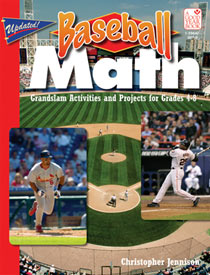No Time Like Overtime
Serpico introduced a point that I’d like to elaborate on: the difference between college football and NFL overtime.
The rules for NFL overtime are simple: the ref holds another coin toss for possession. Fifteen minutes of “sudden death” football are played; the first team to score wins. If no one scores after fifteen minutes, it ends in a genuine tie.
The rules for NCAA football overtime are not as simple, but they’re not complex. One team starts with the ball on the 25-yard line. If they can score on their possession, without giving up on downs or turning the ball over, then the opposing team gets a chance to do the same. If the opposing team scores as well, then they advance to another overtime period. However, if one team scores and the other doesn’t – or doesn’t score as much – that’s it; game over.
We saw an NFL OT game this weekend: Bears over Broncos. Chicago won the coin toss and then went on to sink a long bomb to Desmond Clark and get in field goal range. This shouldn’t surprise the Nerds in the audience: the team that wins the toss wins the OT period, and thus the game, fifty-two percent of the time.
However, we saw two NCAA OT games this weekend, and they were nailbiters both: Arkansas upsetting #1 LSU in triple overtime and Tennessee upsetting Oregon Kentucky in quadruple overtime. The diehard fans that stuck around to watch them to the end – and could you call yourself a serious fan and leave early? – saw some thrilling athletics, let me tell you.
Many pundits insist the NFL’s OT system is “broken.” There have been a number of suggested fixes – some outlandish and exciting (auction off the “kickoff” line on which the OT starts), some relatively straightforward (just adopt the college rules). Here at Nerds on Sports, though, we’re interested in the more fundamental questions.
For instance: why does the NFL have the OT system it does?
Read More
 I hope everyone enjoyed their Thursday football. I’ve been in a tryptophan induced coma for the last 48 hours and I still haven’t finished all the leftovers. I guess I’ll head back into the coma tonight.
I hope everyone enjoyed their Thursday football. I’ve been in a tryptophan induced coma for the last 48 hours and I still haven’t finished all the leftovers. I guess I’ll head back into the coma tonight. I believe that if you perform well on a good team, you have more of a value. Why? Because a team that makes the playoffs makes more money. And like any other business the goal of the business is to make money. The hard part is to quantify this difference.
I believe that if you perform well on a good team, you have more of a value. Why? Because a team that makes the playoffs makes more money. And like any other business the goal of the business is to make money. The hard part is to quantify this difference. It was a close race here, but Hanley Ramirez, shortstop for the Florida Marlins, is the most valuable player in the National League. He put up competitive numbers – 0.386 OBP, 0.562 slugging – at bargain basement prices. At a final price of $1119.78 per base, Ramirez was not only the Most Valuable Player in the NL, but in the entire league.
It was a close race here, but Hanley Ramirez, shortstop for the Florida Marlins, is the most valuable player in the National League. He put up competitive numbers – 0.386 OBP, 0.562 slugging – at bargain basement prices. At a final price of $1119.78 per base, Ramirez was not only the Most Valuable Player in the NL, but in the entire league. Despite all the love this site (
Despite all the love this site (